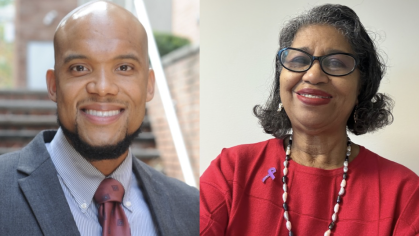Victoria Banyard, Professor, Associate Dean for Faculty Development, andAssociate Director of our Center for Research on Ending Violence, discusses the significance of National Mentoring Month and shares ways to commemorate it.
Tell us a bit about your journey to social work.
My graduate degree is in clinical psychology and I spent my first 25 years as a faculty member in a basic science psychology department. But I think in my heart I have always been a social worker. As a graduate student I took lots of social work classes. So coming to Rutgers School of Social Work feels like coming home.
What is the significance of this month to you?
Mentoring is so significant across the lifespan. One of the things I study is resilience and mentoring, especially mentoring that is done well (meaning that it is collaborative, involves listening to people’s voices) and that is spread across a supportive network (no one needs just one mentor). Mentoring can support and help people build their strengths and well-being.
What are some ways people can commemorate National Mentoring Month?
People can reflect on their mentoring experiences. If you have had good mentors, reach out and express gratitude. If you are a mentor yourself, think about your strengths and challenges and think of ways you can improve your mentoring. Look for opportunities to be a mentor, formally or informally.
Can you tell us a little more about the relationship between mentoring and the social work profession?
Mentoring is a key part of social work as all of us need mentoring to help us be successful in our graduate programs, as we learn skills as clinicians, and as we support the next generation of social workers who will come after us. Many social workers mentor clients as part of the direct service work that they do. Mentoring can connect to our lives in many ways.
How can social workers redirect attention toward mentoring beyond this month?
Have conversations with colleagues about mentoring. Look for opportunities to be a mentor in your workplace and in your community. Learn new skills as a mentor. Being a mentor doesn’t mean you have all the answers. It means you are willing to listen, support, empower, and connect with people. Support non-profit organizations that mentor youth through your time or financial resources if you have them. Many great programs are out there in our communities.
This story was created in partnership with Rutgers School of Social Work's Inclusion, Intersectionality, Diversity, Equity, and Advancement (IIDEA) Committee in support of our commitment to diversity, equity, and inclusion.



